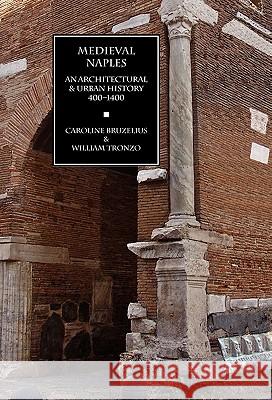Medieval Naples: An Architectural & Urban History, 400-1400 » książka
Medieval Naples: An Architectural & Urban History, 400-1400
ISBN-13: 9781599102023 / Angielski / Twarda / 2011 / 162 str.
Medieval Naples: An Architectural & Urban History, 400-1400
ISBN-13: 9781599102023 / Angielski / Twarda / 2011 / 162 str.
(netto: 142,30 VAT: 5%)
Najniższa cena z 30 dni: 140,42
ok. 16-18 dni roboczych.
Darmowa dostawa!
Two leading American experts on the subject offer the first comprehensive English-language review of Naples' architecture and urban development from late antiquity to the high and late Middle Ages. William Tronzo treats the early Middle Ages, from the end of the western Roman Empire to the end of the Duchy, or from about 400 to 1139. He covers a range of topics, including the development of the city's urban fabric and chief monuments, including the catacombs, Sta. Restituta, the baptistery of San Giovanni in Fonte, the forum area including San Paolo Maggiore and the early history of San Lorenzo Maggiore and the Pietrasanta. Caroline Bruzelius then picks up the narrative and analysis from the twelfth century to the end of the Angevin period. She brings up to date and nuances many of the findings and themes of her The Stones of Naples. She revisits some of the same material on the early medieval city from a different perspective, that of religious foundations and urban topography. She proceeds to patronage - religious, mercantile, noble and royal - and then moves on to the role of Tuscan artists in Naples, concluding with the Angevin reconfiguration of the city in the late Middle Ages. Clearly and concisely written, this book is an ideal introductory survey for the scholar, student and general reader to medieval Naples, its chief monuments and to the scholarly discussions and interpretations of the material, visual and documentary evidence. 160 pages. Preface, select bibliography; appendices, including the Tavola Strozzi with key, Map of Medieval Naples with thumbnail key; index. 83 black & white figures, plus 60 thumbnail images. List of links to online resources from A Documentary History of Naples, including primary-source readings; image galleries containing over 450 additional images in full color; and links to full bibliographies with ongoing supplements.











